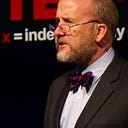Journalistic Ethics: Not rocket surgery, but it does take discipline and practice
Every time a childish outrage is committed by someone like BuzzFeed’s Ben Smith who wraps himself in the mantle of journalism without submitting to the yoke of responsibility, I wait and wait for my profession’s leading lights to re-explain how journalism is defined by a discipline of verification, an oath of independence and a duty to be accountable.
Alas, no.
After BuzzFeed copied and pasted a campaign opposition research team’s un-sourced, unverified dossier on Trump into the public record, what we got this week was:
Sneers: New York Times Editor Dean Baquet rightly dismissed BuzzFeed’s misbehavior, but did not explain the right way to handle explosive materials. “We’re not in the business of publishing things we can’t stand by,” is the burn BuzzFeed deserved, but Baquet shirked his duty to teach the public what we stand for.
Fallacy-riddled apologiae: Mediaite columnist John Ziegler, for instance, defended BuzzFeed on the grounds that “We obviously aren’t dealing with a “normal” President-elect here” as if distaste for Trump justifies this wholesale deviation from journalism ethics.
It’s only fair to note Ziegler’s apologia gets even worse, making a bald moral equivalence argument (that Trump deserves what he got because of his charge that Hillary Clinton’s private server risked national security.)
Too Little: Normally comprehensive, the terrific Margaret Sullivan of the Washington Post stuck to a single strand (“when in doubt, leave it out”) perhaps to avoid treading on the toes of her boss Marty Baron, who would be the logical person to provide a full-throated explanation why the Post didn’t copy and paste the Trump dossier.
More Fallacies: BuzzFeed CEO Jonah Peretti permitted, unchallenged, to say that it was okay because being a target of Trump criticism “ put us in great company.”
It’s too bad that’s what we’ve gotten so far, because this is the perfect time to acquaint citizens with the standard journalistic code of ethics and its useful working notes. I’ve conducted journalism workshops for civic and public groups and it never fails to impress people how hard it is to do journalism right.
I suspect the reason media columnists and pundits don’t talk about the code is that it doesn’t change and journalists are addicted to the new.
But if you’ve done any teaching or marketing, you know repetition is pretty much the only way humans learn. Explaining ethics at every opportunity is the only way we build an audience that demands of journalists the high standards journalists are meant to demand of themselves.
Mature reflection on verification, independence and accountability should have been enough to keep Ben Smith from unfurling the the contents of the “Trump Dossier,” giving credence to an as-yet-unverifiable compendium of allegations of murky provenance and dubious veracity.
In squealing them out to build traffic (5 million hits gets somebody a bonus, I’m thinking), Smith performed little or none of the diligent verification that distinguishes journalism from photocopying.
He sacrificed his independence as a truth-seeker by giving credence to salacious chatter in a way that serves one faction at the expense of the pool of common facts that journalism is meant to provide. And while Smith is accountable, he provided perfect cover to one political faction to ambush its opponent risk-free behind the kind of anonymity that is overused and rarely warrranted in Beltway journalism.
Observed and curated by thousands of journalists through the Society of Professional Journalists and other organizations, the standard code of ethics is not built to suppress difficult truth. This is nonsense perpetuated by people who love that mantle of First Amendment protection but lack the fortitude to submit to the standards developed through hard lessons learned by adults who avail themselves of the power of the press.
Bob Steele, the Poynter Institute’s ethics guru, taught thousands of American journalists a calm system for handling difficult stories by seeking after the ever-evolving truth, minimizing harm, standing apart from factions and those who seek to abuse the power of the press and by providing transparency about methods and choices.
Smith needs that training. He defends the decision to publish the dossier as an example of BuzzFeed’s impulse to “be transparent in our journalism and to share what we have with our readers.”
That’s a misuse of the term that makes me embarassed for his ignorance and fearful for his impact on journalists at every level.
That word, “transparency”, when used by journalistic ethicists, describes the commitment to tell readers how you got your information, what you still don’t know that you should and how you decided what to leave out.
Transparency is emphatically not the practice of publishing everything that is sent to you by political operatives of unknown credibility. The rest of journalists will thank Smith to stop slinging the term around improperly.
Here’s how the Code of Ethics is applied to a situation like the one BuzzFeed mishandled.
Seek Truth: You’re a servant of the public interest, holding a document that claims to expose mis-, mal- and non-feasance by the President-elect. Merely repeating the latest claim of Trumpian misbehavior is stenography. If you’re devoted to seeking truth, you verify what you can and leave out the rest. As the deeper notes in the code point out: “Remember that neither speed nor format excuses inaccuracy.”
Nothing was going to change if you took a day to figure out, for instance, that Trump’s lawyer could not have been meeting with Russian agents at the time the dossier claims he was.
Mother Jones handled the story skillfully in October, focusing on the legitimate questions about Trump’s relationship to Russian President Vladimir Putin instead of the salacious rumors, as did CNN, focusing on the fact that the FBI saw fit to warn the President and President-elect about the dossier’s questions about a KGB influence operation.
Act Independently: This one is tricky if you are untrained, as Ben Smith appears to be. Not only should you fight the efforts of Trump’s primary and general election rivals to plant unproved stories in the public sphere, you should also fight the urge to let other newsrooms make your coverage decisions.
The rush to publication was, in this case, unwarranted and appears to have been driven by BuzzFeed CEO Jonah Peretti’s quest for “impactful journalism” as opposed to solid journalism. As Editor-in-Chief, Smith needed to preserve the newsroom’s independence from Peretti’s narrow focus on impact. Getting a story first can’t be more important than getting it right.
Minimize Harm: Don’t confuse this with “Do no harm,” a dictum mouthed by unserious publishers. You literally do harm with every story you publish. Tell readers someone has been arrested and you’ve harmed their kids. Report on the explosion of Ford Explorer tires and you’ve harmed the tire-maker, autoworkers, dealers.
The point of this element of journalism ethics is to balance harm against truth-seeking, looking for alternative choices that minimize unnecessary harm.
The deeper notes of the code remind journalists that “that legal access to information differs from an ethical justification to publish or broadcast” and challenges ethical journalists to “Avoid pandering to lurid curiosity, even if others do.”
Trump is a public figure, which means BuzzFeed is almost certainly immune to any libel action. But the harm done to Trump’s reputation by the dossier report is permanent and at this stage unsupported by evidence.
Worse yet, Smith’s impetuous act has harmed journalism, making it harder for responsible actors to do the unpopular work of telling citizens things they don’t want to know.
It’s not too late for Smith to uphold the best standards of accountability. In addition to explaining ourselves and holding each other accountable to the code, journalists are called to “Acknowledge mistakes and correct them promptly and prominently.”
Now would be a good time for Smith and Peretti to apologize and for newsroom leaders to engage their audiences in a careful discussion of journalism ethics.
Dean Miller is a veteran reporter and editor and was selected in 2006 as an Ethics Fellow by the Poynter Institute for Media Studies.

